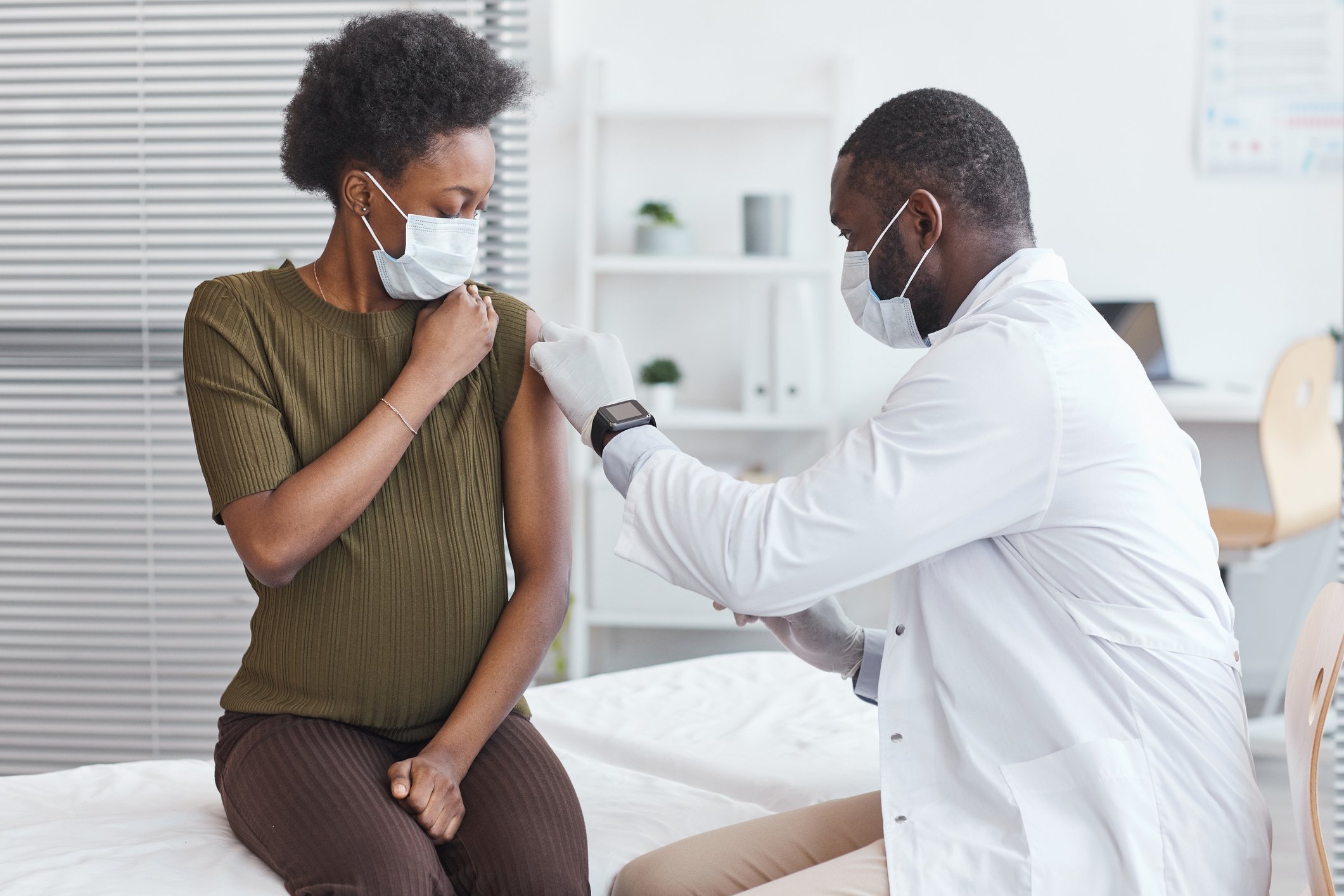
Tdap (Pertussis) Vaccine
Tdap is the vaccine that protects adults against pertussis (whooping cough).
Pertussis (whooping cough) is a very contagious respiratory infection that can be deadly in young children, especially those under 1 year of age. It starts with cold-like symptoms and then can cause a very strong cough. The coughing can be so severe that it can be hard for a child to catch their breath. Because the mucus from the infection can make the windpipe narrower and keep air from flowing easily, the child may make a unique “whooping” sound as they try to get air.
Babies and younger infants can become very sick if they get pertussis. Instead of coughing, they may gasp, gag, or throw up. They can turn blue from lack of oxygen. Apnea (when a baby stops breathing for a short time) and seizures may occur if the coughing is very severe.
In some babies, the pertussis infection can also get into their lungs, causing pneumonia. Up to 50% of children with pneumonia from pertussis will need to be admitted to a hospital for additional treatment, including oxygen, and sometimes need to be placed on a machine to help them breathe. In the United States, a small percentage of infected infants die each year from complications related to pertussis.
-
There are two vaccines for pertussis that are given at different ages and for different life situations:
DTaP (diphtheria, tetanus, and pertussis) is given to babies and children. It protects against pertussis and two other serious diseases. Babies get doses of DTaP at 2, 4, and 6 months of age and then boosters at 15–18 months and 4–6 years.
Tdap (tetanus, diphtheria, and pertussis) is a booster shot. It is given to the following people:
Children aged 11–12 years
At least once to adults who have never had Tdap; it can be given at any time, regardless of when they last got a tetanus booster (Td)
Pregnant women during each pregnancy
-
Pregnant women can protect their babies before they are born by getting Tdap during pregnancy. Babies can’t be vaccinated against pertussis until they are 2 months old. So babies born to moms who aren’t vaccinated during the pregnancy won’t be protected against pertussis until they can get that first vaccine. Getting the Tdap vaccine during pregnancy reduces the risk of babies getting whooping cough before 2 months of life by almost 80%.
-
When you get Tdap, your body immediately starts making protective antibodies. These are the proteins made by your immune system that target pertussis if you are exposed to it.
These antibodies cross the placenta and enter your baby’s bloodstream. When your baby is born, they will have enough antibodies to help protect against pertussis until it’s time to get the vaccine at age 2 months. Although you will continue to be protected against pertussis after the pregnancy, the levels of antibodies available to be passed to the baby are highest before delivery. Getting Tdap during every pregnancy re-boosts your antibodies so that the maximum amount can be transferred to the baby. There have been no risks reported with repeat Tdap vaccinations in adults.
-
The best time to get Tdap is between weeks 27 through 36 of pregnancy. It’s recommended that you get it as early as possible within this timeframe. This timing helps you pass the most antibodies possible to your fetus before you deliver. However, it’s safe to get Tdap at any point during your pregnancy.
-
Yes. Tdap vaccination in pregnancy is very safe. Research done in the last 10 years has shown that getting the vaccine during pregnancy doesn’t increase the risk of pregnancy problems or birth defects. Read more about Tdap’s safety record here.
-
The vaccine has very few side effects. Pain and redness can occur where the injection is given. If any pain, redness, or swelling lasts beyond a few days, contact your healthcare professional.
Quick Facts
Pertussis (whooping cough) is a contagious disease that causes a bad cough.
In babies, it can be very serious. Approximately one-half of babies who get pertussis end up in the hospital.
There is a vaccine for pertussis, but babies don’t get it until they are 2 months old. You can protect your newborn by getting vaccinated with the pertussis vaccine (Tdap) when you are pregnant.
To give your baby the best protection, you need to get Tdap during each pregnancy. The ideal time is between weeks 27 through 36 of pregnancy, preferably during the earlier part of this time period.
Tdap has been proven to be safe during pregnancy. It does not cause birth defects or pregnancy complications.
Glossary
Antibodies: Proteins made by the immune system in response to a foreign substance, such as a virus.
Immune system: The cells and organs that protect the body against foreign substances, such as bacteria and viruses.
Pertussis: A contagious disease that causes severe coughing and is especially serious for babies younger than 1 year. Also called whooping cough.
Placenta: A special organ that develops during pregnancy. It allows the transfer of nutrients, antibodies, and oxygen to the fetus. It also makes hormones that sustain the pregnancy.
This resource was supported by the Society for Maternal-Fetal Medicine (SMFM) and the Centers for Disease Control and Prevention (CDC) cooperative agreement CDC-RFA-DD-23-0004 Enhancing Partnerships to Address Birth Defects, Infant Disorders and Related Conditions, and the Health of Pregnant and Postpartum People. The views expressed by the authors do not necessarily reflect the official policies of the Department of Health and Human Services nor represent an endorsement by the U.S. Government.
Last Updated: August 2025
